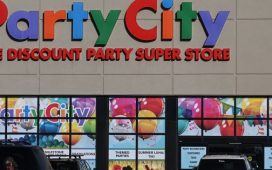In April, whistleblower Sam Salehpour—a 17-year quality engineer for Boeing—took a seat before the Senate Committee on Homeland Security & Governmental Affairs. The committee was investigating Boeing’s safety culture following several highly publicized incidents, notably the fatal crashes of Boeing 737 Max-8 planes in 2018 and 2019, and a door plug blowout on a 737 Max-9 in January.
Salehpour’s testimony was damning.
“I genuinely believe that the safety problems I have observed at Boeing, if not addressed, could result in a catastrophic failure of a commercial airplane that would lead to the loss of hundreds of lives,” Salehpour testified.
Boeing is not a consumer brand, but its public image has suffered to the point where consumers are treating it like one.
In the aftermath of Boeing’s high-profile mishaps, a January survey by JW Surety Bonds found that nearly half of Gen Z travelers are afraid to fly. A survey conducted by Pollfish for Casinos.us revealed that over half the traveling public would pay $50-$150 extra “for tickets on what they perceive to be safer aircraft than Boeing’s.” NBC has reported that travelers have gone so far as to rebook flights to avoid Boeing planes.
With the summer travel season in full swing, what can Boeing do to restore its good name?
“There’s no message, no slogan that will accomplish that,” Boeing CEO Dave Calhoun told employees earlier this year. “It’s all about real, demonstrated action and absolute transparency every step of the way.” (A Boeing spokesperson referred ADWEEK to this statement when asked to comment.)
Boeing is expected to name a new CEO before the year is out. Meanwhile, ADWEEK reached out to some of the top names in rebranding and crisis communications to ask them what they think Boeing should be doing. Here’s what they told us.
David E. Johnson, CEO, Strategic Vision PR Group:
“Boeing needs to do numerous things to begin restoring its reputation and assuring stakeholders. The first thing is speed up the departure of the CEO. He is associated with the ongoing debate, and at this point the public and policymakers will not put much credence in what he is saying.

![TikTok, Snapchat and Spotify top a list of brands Gen Z consumers trust most compared to all U.S. adults, according to a new report from decision intelligence company Morning Consult. […]](https://usercontent.one/wp/www.techregister.co.uk/wp-content/uploads/2024/07/What-Should-Boeing-Do-to-Repair-Its-Damaged-Reputation.jpg?media=1730400616)











